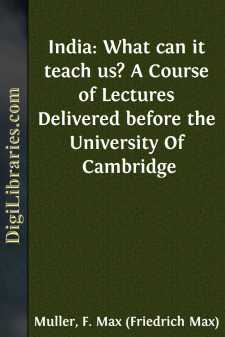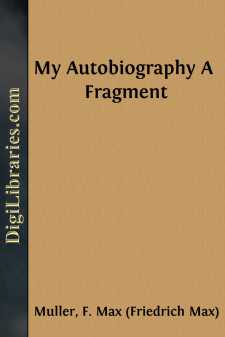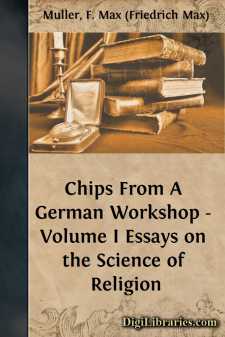Categories
- Antiques & Collectibles 13
- Architecture 36
- Art 48
- Bibles 22
- Biography & Autobiography 815
- Body, Mind & Spirit 144
- Business & Economics 28
- Children's Books 18
- Children's Fiction 14
- Computers 4
- Cooking 94
- Crafts & Hobbies 4
- Drama 346
- Education 58
- Family & Relationships 59
- Fiction 11833
- Games 19
- Gardening 17
- Health & Fitness 34
- History 1378
- House & Home 1
- Humor 147
- Juvenile Fiction 1873
- Juvenile Nonfiction 202
- Language Arts & Disciplines 89
- Law 16
- Literary Collections 686
- Literary Criticism 179
- Mathematics 13
- Medical 41
- Music 40
- Nature 179
- Non-Classifiable 1768
- Performing Arts 7
- Periodicals 1453
- Philosophy 65
- Photography 2
- Poetry 896
- Political Science 203
- Psychology 44
- Reference 154
- Religion 515
- Science 126
- Self-Help 85
- Social Science 82
- Sports & Recreation 34
- Study Aids 3
- Technology & Engineering 59
- Transportation 23
- Travel 463
- True Crime 29
F. Max (Friedrich Max) Muller
Friedrich Max Müller (1823-1900) was a German-born philologist and orientalist, known for his pioneering work in the study of comparative religion and mythology. He was instrumental in bringing the ancient texts of India, particularly the Rigveda, to the attention of Western scholars through his translations and commentaries. Müller was also a key figure in the development of the academic field of religious studies, advocating for the understanding of religions in a historical and cultural context. His work laid the foundation for modern comparative linguistics and the study of Indo-European languages.
Author's Books:
Sort by:
Chapter I. The Twin-Verses 1. All that we are is the result of what we have thought: it is founded on our thoughts, it is made up of our thoughts. If a man speaks or acts with an evil thought, pain follows him, as the wheel follows the foot of the ox that draws the carriage. 2. All that we are is the result of what we have thought: it is founded on our thoughts, it is made up of our thoughts. If a man...
more...
My dear Cowell: As these Lectures would never have been written or delivered but for your hearty encouragement, I hope you will now allow me to dedicate them to you, not only as a token of my sincere admiration of your great achievements as an Oriental scholar, but also as a memorial of our friendship, now more than thirty years old, a friendship which has grown from year to year, has weathered many a...
more...
PREFACE For some years past my father had, in the intervals of more serious work, occupied his leisure moments in jotting down reminiscences of his early life. In 1898 and 1899 he issued the two volumes of Auld Lang Syne, which contained recollections of his friends, but very little about his own life and career. In the Introductory Chapter to the Autobiography he explains fully the reasons which led...
more...
FIRST MEMORY. Childhood has its secrets and its mysteries; but who can tell or who can explain them! We have all roamed through this silent wonder-wood—we have all once opened our eyes in blissful astonishment, as the beautiful reality of life overflowed our souls. We knew not where, or who, we were—the whole world was ours and we were the whole world's. That was an infinite life—without...
more...
PREFACE. ore than twenty years have passed since my revered friend Bunsen called me one day into his library at Carlton House Terrace, and announced to me with beaming eyes that the publication of the Rig-veda was secure. He had spent many days in seeing the Directors of the East-India Company, and explaining to them the importance of this work, and the necessity of having it published in England. At...
more...






